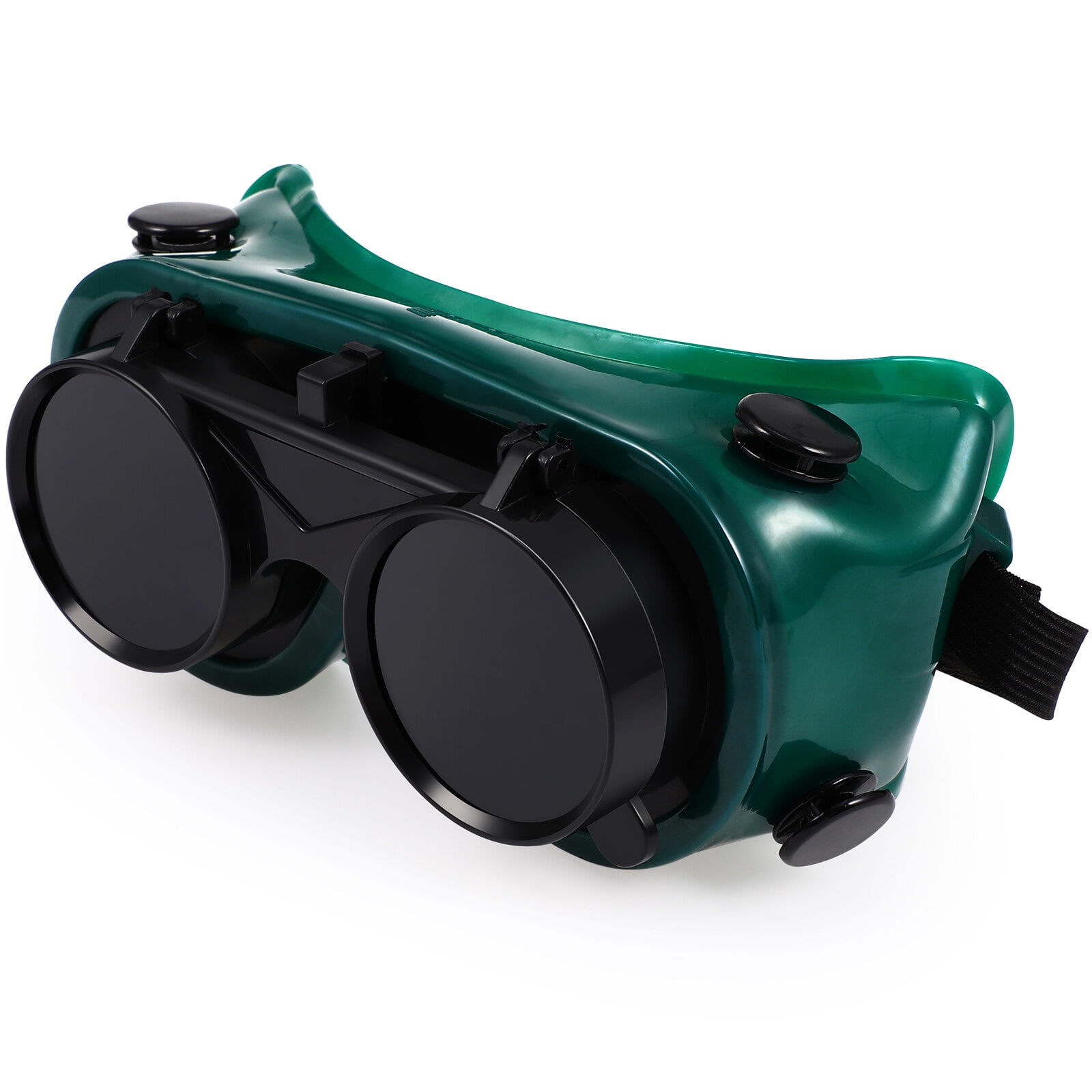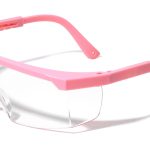Introduction
Welding safety glasses are a vital part of any welder’s gear. They protect the eyes from harmful radiation and flying debris. This guide explains how to choose and use welding safety glasses effectively.
Understanding the Hazards of Welding
The Importance of Eye Protection
Welding emits intense light and heat, which can harm the eyes. Safety glasses shield against ultraviolet and infrared radiation.
Types of Radiation from Welding
Know the types of radiation welding produces. Protecting against UV and IR rays is crucial for eye safety.
Choosing the Right Welding Safety Glasses
Key Features of Welding Glasses
Select safety glasses that meet industry standards. They should withstand high-impact hazards and filter out harmful rays.
Lens Shade and Visibility
The shade of the lens matters. Match the lens shade to the welding process for adequate protection.
Proper Usage of Welding Safety Glasses
Wearing Tips for Maximum Protection
Fit your glasses snugly. Ensure they sit correctly for complete coverage and comfort.
Caring for Welding Safety Glasses
Keep glasses clean and scratch-free. Regular maintenance extends their durability and effectiveness.
The Hazards of Welding and the Need for Eye Protection
Welding, a skilled and often physically demanding task, exposes practitioners to a range of potential eye hazards that require comprehensive safeguards.
The Unique Challenges of Welding
The welding process involves the use of intense heat, bright light, and the release of various fumes and particulates, all of which can pose significant risks to the eyes. These hazards can lead to a variety of eye-related injuries, so including corneal burns, retinal damage, and the development of cataracts.
The Importance of Proper Eye Protection
Safeguarding the eyes of welders is of paramount importance, as eye injuries can not only result in immediate pain and discomfort but also have long-lasting consequences, potentially leading to permanent vision impairment or even blindness. Effective eye protection is, therefore, a crucial component of the welding safety protocol.
The Role of Welding Safety Glasses
Welding safety glasses are specifically designed to shield the eyes from the unique hazards of the welding process, providing a critical barrier between the welder’s eyes and the potentially harmful elements encountered during the job.
The Features of Welding Safety Glasses
Welding safety glasses are engineered with a range of specialized features that address the specific needs of welders and the challenges they face in the workplace.
Lens Tint and Shading
One of the primary features of welding safety glasses is the specialized lens tint or shading, which is designed to protect the eyes from the intense light generated during the welding process. These lenses typically feature a dark, welding-specific shade that effectively filters out harmful ultraviolet (UV) and infrared (IR) radiation, reducing the risk of eye strain, photokeratitis (welder’s flash), and other light-related injuries.
Impact Resistance
Welding safety glasses are engineered to provide exceptional impact resistance, shielding the eyes from flying sparks, slag, and other debris that may be generated during the welding operation. This feature is crucial in preventing serious eye injuries and ensuring the overall safety of the welder.
Ventilation and Fog Resistance
Welding can often take place in environments with high heat and humidity, which can lead to the fogging of traditional safety glasses. Welding safety glasses are designed with ventilation systems and anti-fog coatings to maintain a clear and unobstructed view, allowing welders to work with optimal visual acuity.
Compatibility with Other PPE
Welding safety glasses are often designed to be compatible with other personal protective equipment, such as welding helmets, respirators, and face shields. This integration ensures a comprehensive and cohesive safety system, protecting the welder’s eyes while allowing for the use of additional safeguards as needed.
Selecting and Utilizing Welding Safety Glasses
Choosing the right welding safety glasses and using them correctly are essential steps in maintaining eye safety and preventing workplace injuries.
Choosing the Appropriate Lens Shade
Welding safety glasses come with a range of lens shades, each designed for specific welding applications and amperage levels. Welders must select the appropriate shade number based on the type of welding they are performing, ensuring that their eyes are adequately protected from the intensity of the light and heat.
Proper Fit and Adjustability
A proper fit is crucial for the effective use of welding safety glasses. Welders should ensure that the frames fit securely around their face, providing a snug and comfortable seal to prevent the intrusion of hazardous particles or light.
Cleaning and Maintenance
Regular cleaning and maintenance of welding safety glasses are essential to maintain their effectiveness and extend their lifespan. Welders should follow the manufacturer’s guidelines for cleaning and care, avoiding the use of abrasive materials that could scratch or damage the lenses.
Protecting Your Eyes: The Importance of Welding Safety Glasses
Welding is a common practice in various industries, from construction and manufacturing to automotive repair and artistry. While welding offers a valuable tool for joining metals, it also poses significant risks to the eyes. The intense light and radiation emitted during welding can cause serious eye injuries, including burns, cataracts, and even blindness. This is where welding safety glasses play a crucial role in protecting your vision.
Understanding Welding Hazards
Welding arcs generate various types of radiation harmful to the eyes:
- Ultraviolet (UV) Radiation: This invisible light can cause a painful condition called “arc eye” or “welder’s flash.” Symptoms include a feeling of sand in the eyes, tearing, and sensitivity to light.
- Infrared (IR) Radiation: This type of radiation produces heat and can damage the cornea and lens of the eye, potentially leading to cataracts.
- Visible Light: The intense brightness of the welding arc can cause temporary blindness or “flash blindness,” impairing vision and increasing the risk of accidents.
- Sparks and Debris: Welding processes often generate sparks and flying debris, which can cause physical injuries to the eyes.
Choosing the Right Welding Safety Glasses
Selecting the appropriate welding safety glasses is essential for optimal protection. Consider these factors:
- Welding process: Different welding processes emit varying levels of light and radiation. Consult the welding equipment manual or a safety expert to determine the appropriate shade level for your specific application.
- Comfort and fit: Glasses should fit comfortably and securely without obstructing your vision or movement.
- Additional features: Some glasses offer features like adjustable temples, anti-fog coatings, and prescription lenses for individuals who wear corrective eyewear.

Beyond Welding Safety Glasses: Additional Protective Measures
While welding safety glasses are crucial, they should be part of a comprehensive eye protection strategy:
- Welding helmets: For high-intensity welding or extended periods, a welding helmet provides additional protection for the face, neck, and head.
- Safety screens: Use portable screens or curtains to shield nearby workers and bystanders from the welding arc and potential hazards.
- Proper work practices: Maintain a safe distance from the welding arc, avoid looking directly at the weld, and follow all safety guidelines for the specific welding process.
Conclusion: Invest in Your Vision
Welding safety glasses are an essential investment for anyone involved in welding activities. They provide crucial protection against the various eye hazards associated with welding, safeguarding your vision and preventing potentially serious injuries. By choosing the right glasses, using additional protective measures, and following proper safety practices, you can ensure a safe and productive welding experience. Remember, protecting your eyes today ensures a lifetime of clear vision tomorrow.


